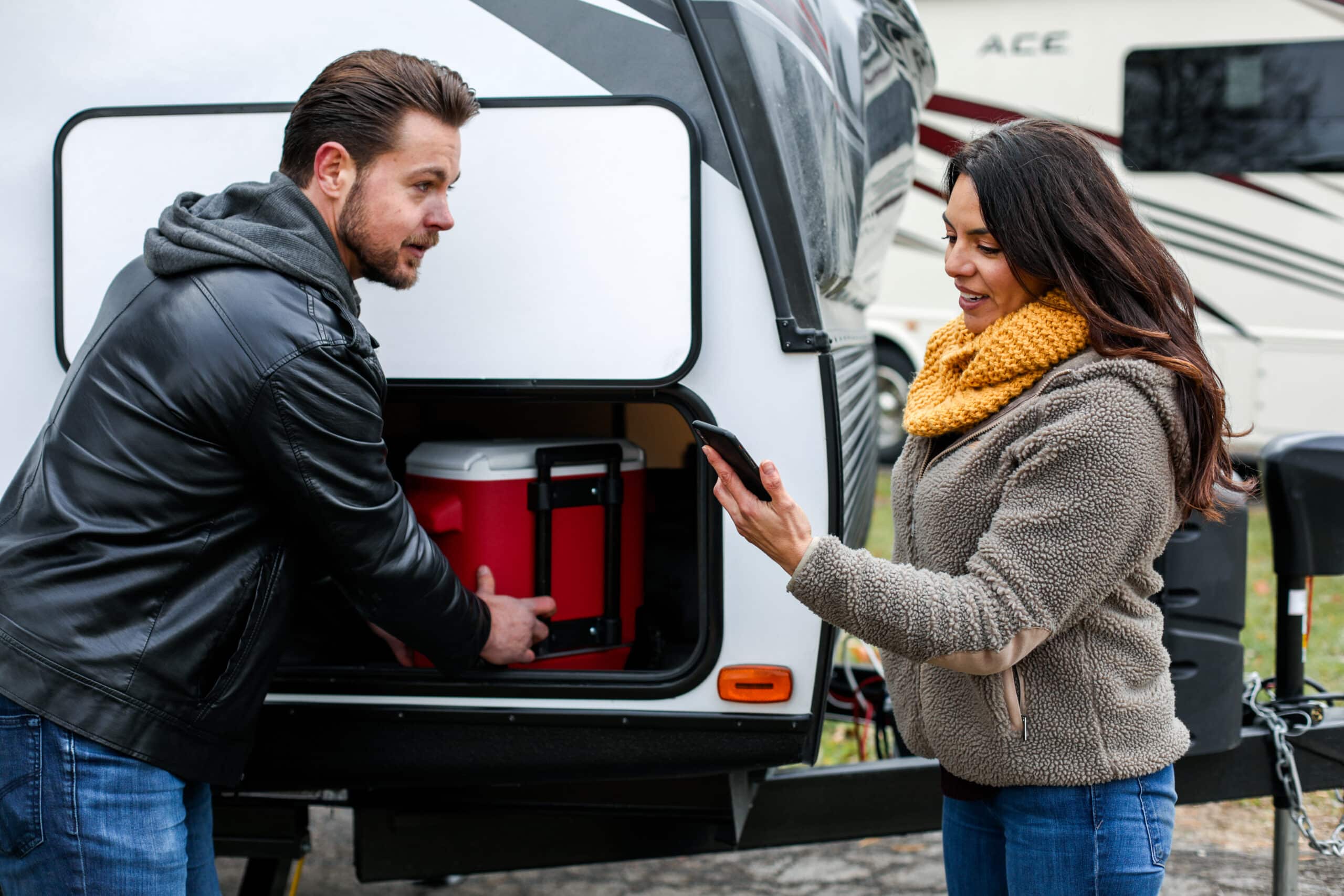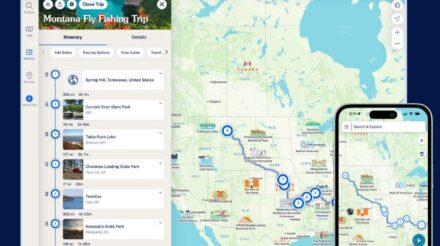The propane system is often misunderstood and can be worrisome to use for some RVers. However, propane is actually one of the safest energy sources in the RV. With a basic understanding of propane operation and safety features, RVers can learn to use propane-fueled appliances with confidence.
Key Takeaways
- A lit cooktop but silent furnace or water heater signals a propane lockout from the excess flow valve.
- Propane regulators need replacing every five years, and unknown ages mean assume expiry and schedule operating pressure and lockout tests.
- An LP detector alarm may signal propane or aerosol butane or methane or low battery voltage or an expired sensor.
Common issues with RV propane systems include appliances not lighting, determining if propane is in the tanks, and proper operation.
Here are a few important tips to keep in mind when troubleshooting and caring for your RV’s propane system.
How to Turn on an RV Propane System Correctly
Open the Service Valve the Right Way to Avoid Lockouts
Turn off all appliances that call for propane, including the cooktop and oven, refrigerator, water heater, and furnace. If the service valve is already in the “open” position on your propane tanks or cylinders, close it. There are arrows on the triangle-shaped handle indicating which way to turn the valves. Wait a few minutes, then turn the service valve back to the “open” position. This also resets the system if you experience a propane lockout.
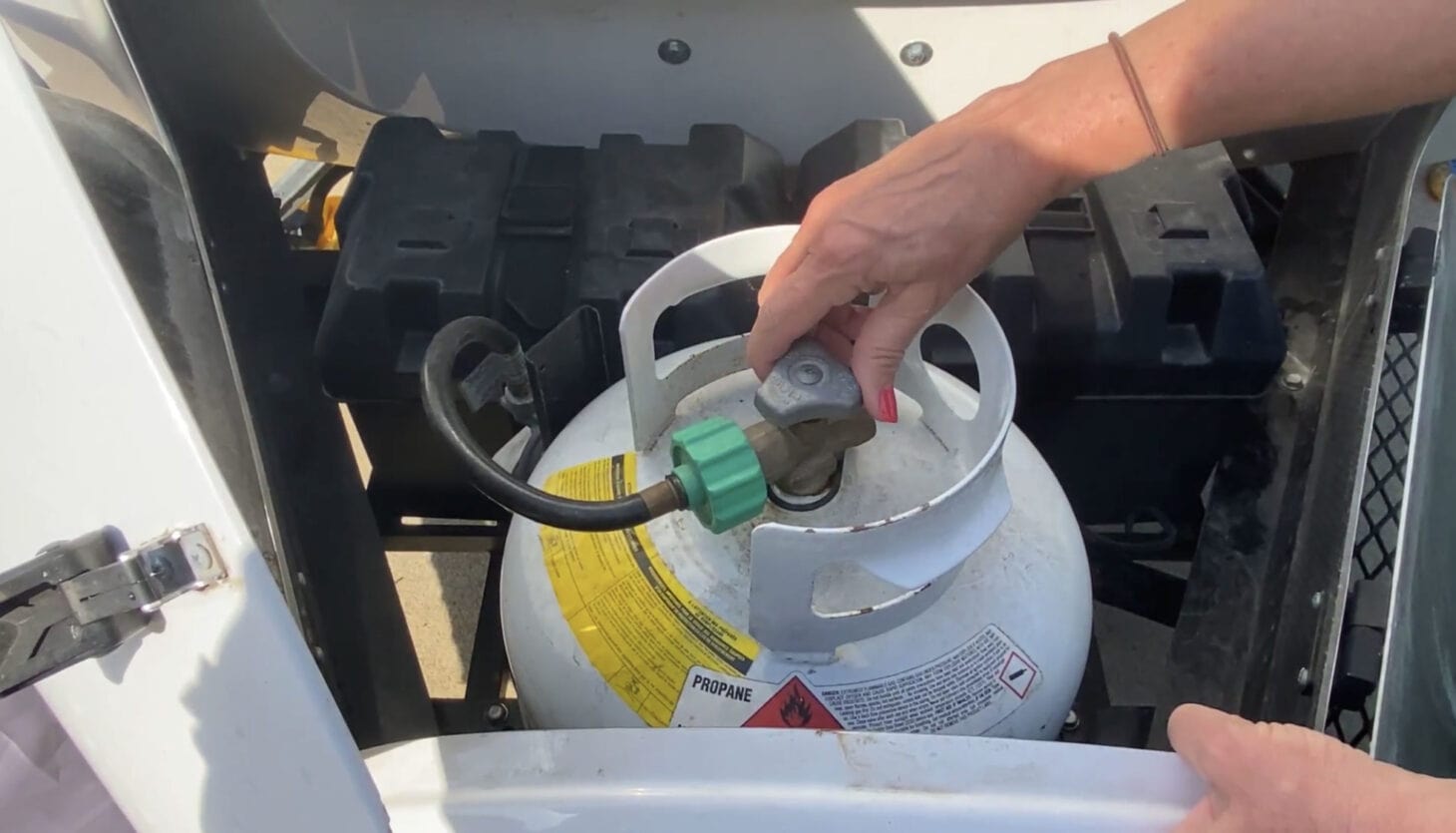
Cooktop Lights but Furnace or Water Heater Won’t: Propane Lockout Explained
What the Excess Flow Valve Does
This likely means that you’re experiencing a propane lockout and not that there is air in the lines. There’s a safety feature within your RV propane system called the excess flow valve. You can accidentally engage this safety feature, which severely “limits” the amount of propane flowing through the system. This occurs when you already have one of the propane appliances turned on prior to opening the tank’s service valve.
How to Reset the Excess Flow Valve Safely
To reset the excess flow valve, turn off all appliances calling for propane, turn the service valve to the “closed” position, wait a couple of seconds, and turn the service valve back to the “open” position.
Other Causes: Bad LP Regulator or Blocked LP Line
A bad LP regulator or kinked or partially blocked LP line can also cause this problem.
Resetting an RV Propane System After a Lockout
You can also experience a propane lockout if you attempt to unsuccessfully light an appliance three times. To reset, turn off the appliance and turn it back on to allow the 12-volt DC-powered control board to start the process again. Also, confirm that the propane tank has propane in it and that the service valve is open. If the ignition process fails repeatedly, it’s time to troubleshoot the actual appliance itself.
RV Propane Regulator Maintenance and Replacement Timelines
When to Replace a Propane Regulator
It’s recommended to replace a propane regulator every 5 years. There’s a rubber diaphragm inside that deteriorates over time, and temperatures also take their toll on the device. If you don’t know the age of your regulator, assume it’s expired and have it replaced.
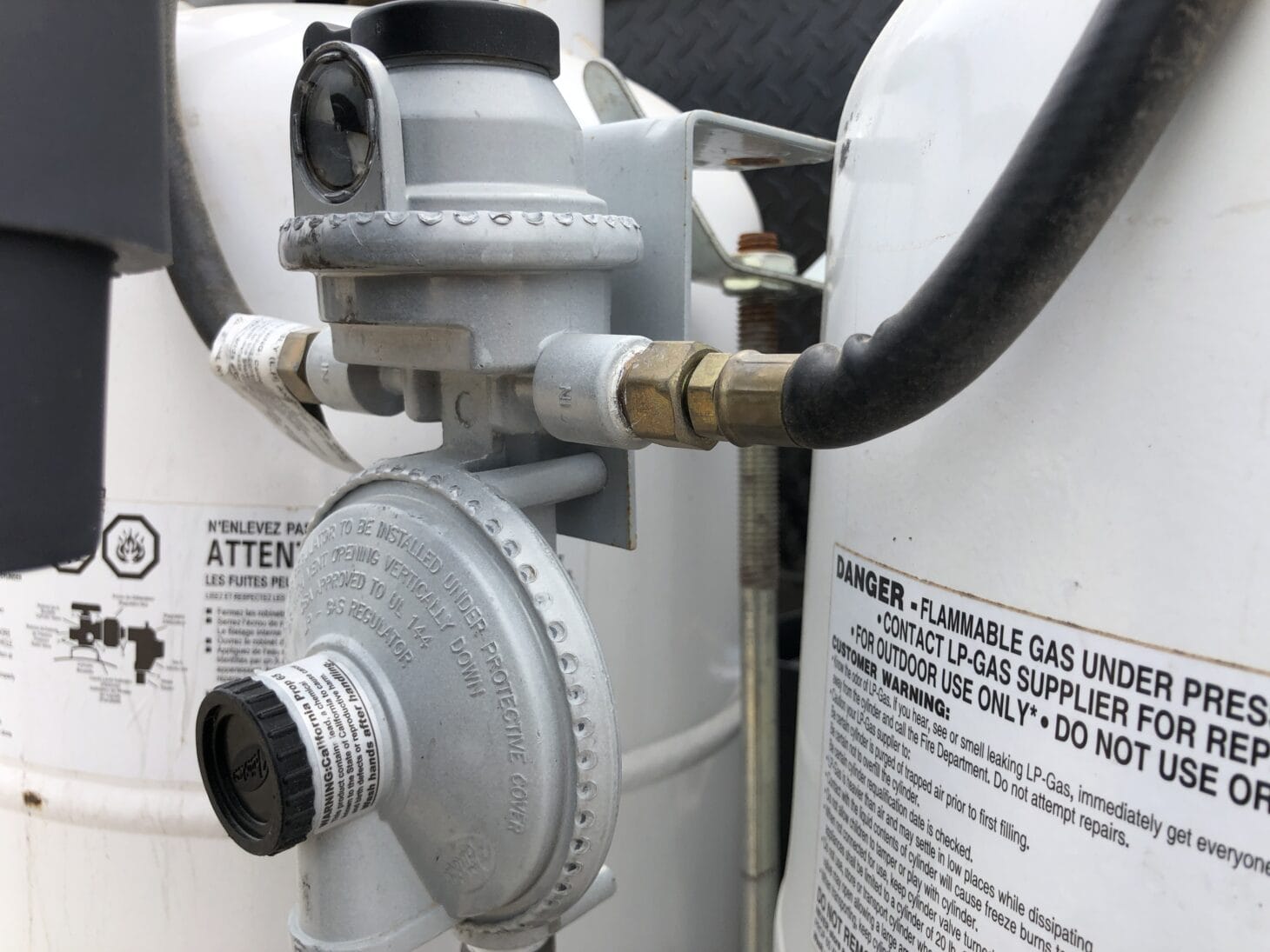
Regulator Tests to Request: Operating Pressure and Lockout
There are tests that an RV inspector, RV technician, or propane-certified technician can perform to confirm the integrity of your regulator. Ask for an operating pressure test and a regulator lockout test.
LP Gas Detector Alarms in an RV: Common Causes
What the Alarm Might Detect: Propane, Butane, Methane
There are three reasons why your LP detector could sound an alarm. It could be detecting propane, butane, or methane, meaning it could be detecting a propane leak within your system, or it could also be detecting butane from aerosol sprays and even methane from other sources. Another reason is that the coach battery voltage might be low. Or, the detector might be nearing the end of its life expectancy or is expired.
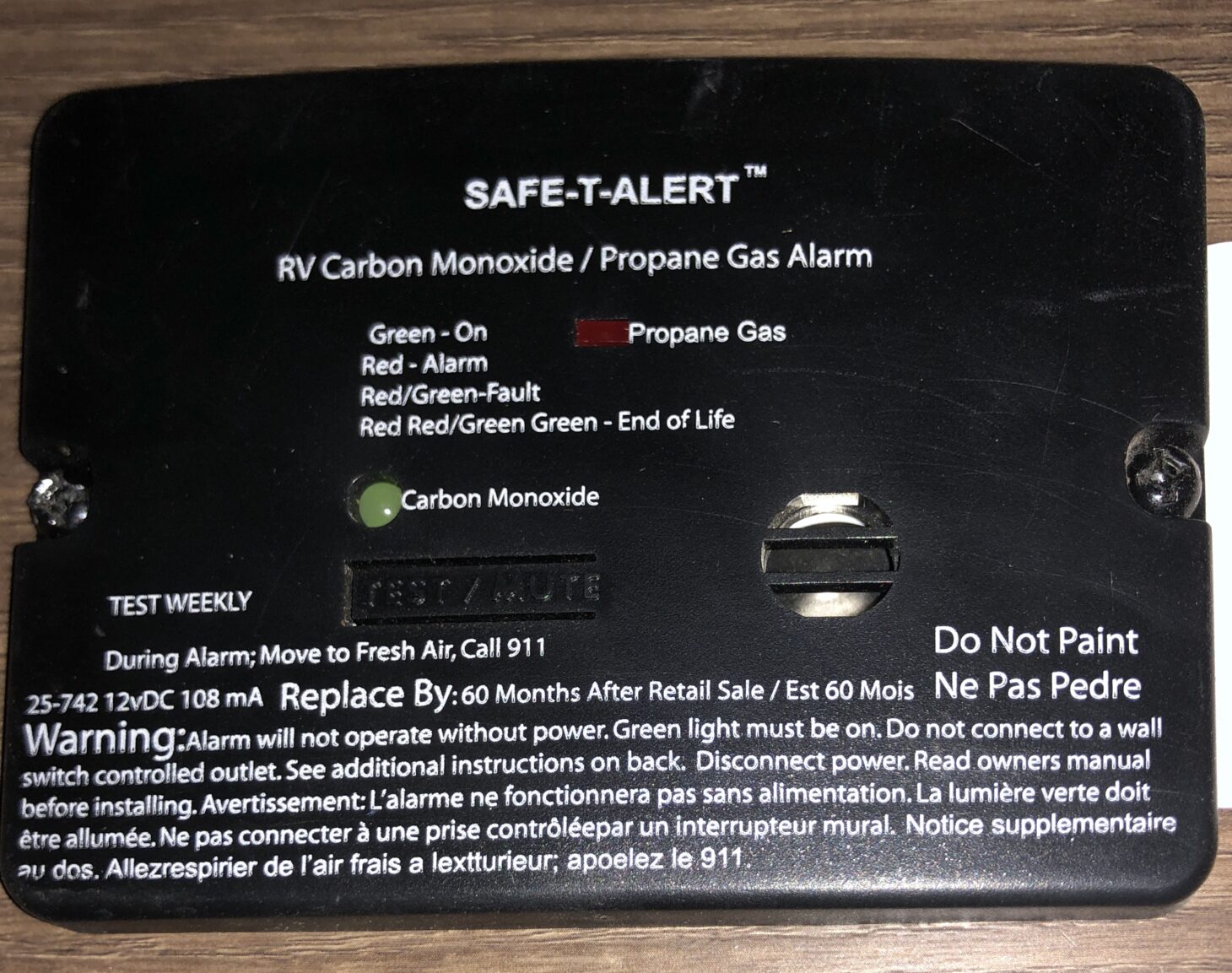
When to Call an RV Technician for Propane Service
These troubleshooting tips can help you handle some common RV propane issues on your own. However, there are going to be problems that require the expertise of an RV technician, like replacing the regulator, leaking propane lines, and performing an annual system check-up.


